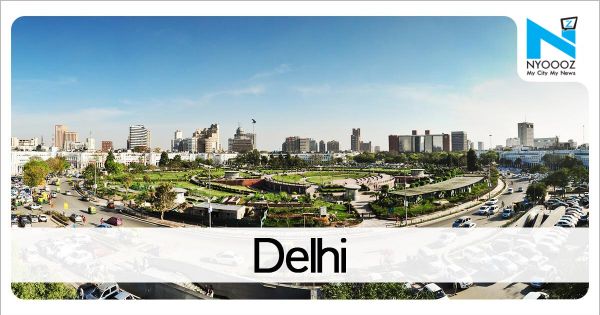On May 12, the University of Chicago Trust (UC Trust) and the Transport Department of the Delhi government signed a Memorandum of Understanding (MoU) to facilitate “an evidence-based approach to reducing vehicular pollution in Delhi”.
According to a news release from the Energy Policy Institute at the University of Chicago, India (EPIC-India, which collaborates with multiple stakeholders to work on subjects including power and markets), the cooperation will also involve the establishment of a research team to develop creative policy solutions.
Delhi’s traffic pollution
One of the main causes of Delhi’s air pollution is vehicle emissions, which create toxins including nitrogen oxides and particulate matter (PM), which can lead to a variety of health problems, including respiratory problems. On-road PM emissions are made up of both exhaust and non-exhaust components, like PM from tyre and brake wear. The Centre for Science and Environment conducted studies in 2021 and 2022 that revealed that, among local sources, cars were responsible for around half of Delhi’s particle pollution in October–November (including the week of Diwali).
The University of Chicago Trust (UC Trust) and the Transport Department of the Delhi government signed a Memorandum of Understanding (MoU) on May 12 with the goal of using data to research and develop policy interventions and solutions to reduce vehicular pollution in the nation’s capital.
According to the statement, researchers from EPIC India will work with the transport department to “improve the effectiveness of its existing programmes and design changes to improve them” by “leveraging insights from advanced statistics, machine learning, artificial intelligence, data visualisation, use of satellite data, econometrics, etc.”
According to the press release, “the relationship will also facilitate information exchange and high-quality data analysis, in addition to fostering research that is evidence-based for policy innovation, evaluation, and capacity building.
Engaging in government work
Additionally, according to the press release, researchers will collaborate with government representatives to “enable knowledge exchange through seminars, workshops, or training sessions and carry out policy evaluation”.
Ashish Kundra, principal secretary for the Delhi government, said, “We are eager to collaborate closely with the researchers from the Energy Policy Institute at the University of Chicago Trust in India (EPIC India) and incorporate the application of research and policy expertise with the foresight to generate new policy initiatives and solutions, along with a rigorous evaluation of the transport department’s existing programmes.”
“EPIC-India is thrilled to contribute to these vital efforts to combat vehicular pollution and improve Delhi’s air quality,” said Michael Greenstone, Milton Friedman Professor in Economics and Director of the Energy Policy Institute at the University of Chicago. “We have worked with governments around the world, including several state governments in India, for nearly a decade to advance evidence-based policymaking.”








